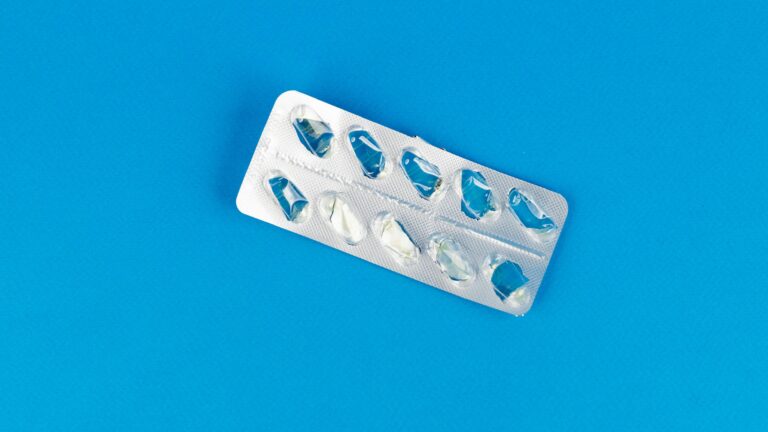Erectile dysfunction (ED) is a sensitive topic that affects millions of men worldwide. While numerous causes can contribute to this condition, medications, particularly antidepressants, are often overlooked culprits. One such medication is amoxapine, a tricyclic antidepressant (TCA) primarily prescribed to treat major depressive disorders. In this article, we delve into how amoxapine may lead to erectile dysfunction, ways to manage this side effect, and what men can do to regain their confidence in the bedroom.
- What is Amoxapine?
- How Does Amoxapine Cause Erectile Dysfunction?
- Symptoms of Erectile Dysfunction Caused by Amoxapine
- Who is at Risk?
- Managing Amoxapine-Related Erectile Dysfunction
- Alternative Treatments for Depression Without Sexual Side Effects
- The Importance of Open Communication
- When to Seek Professional Help
- Final Thoughts
- FAQs: Amoxapine and Erectile Dysfunction
- Question: What is amoxapine?
- Question: Can amoxapine cause erectile dysfunction?
- Question: How does amoxapine lead to erectile dysfunction?
- Question: What can I do if I experience erectile dysfunction while taking amoxapine?
- Question: Are there alternative antidepressants with fewer sexual side effects?
- Question: Can erectile dysfunction caused by amoxapine be reversed?
- Question: Should I stop taking amoxapine if I experience erectile dysfunction?
What is Amoxapine?
Amoxapine is an antidepressant that belongs to the tricyclic class. It works by balancing neurotransmitters in the brain, such as serotonin and norepinephrine, to alleviate depressive symptoms. While effective for mental health issues, TCAs like amoxapine are notorious for their side effects, which can range from dry mouth and drowsiness to more severe issues like sexual dysfunction.
How Does Amoxapine Cause Erectile Dysfunction?
Erectile dysfunction associated with amoxapine use is primarily due to its impact on the central nervous system and blood flow. Here’s a closer look at the mechanisms involved:
- Neurotransmitter Interference
Amoxapine alters the balance of dopamine, serotonin, and norepinephrine. While this helps with mood regulation, it can disrupt the brain’s signaling pathways for sexual arousal and erection. - Anticholinergic Effects
Like other TCAs, amoxapine has anticholinergic properties, which can lead to reduced blood flow to the penis. This effect makes it harder to achieve or maintain an erection. - Hormonal Imbalances
Antidepressants may impact testosterone levels, which are critical for libido and erectile function. A dip in testosterone can compound ED issues. - Emotional and Psychological Impact
While amoxapine aims to improve mental health, the sexual side effects can create anxiety and stress, further exacerbating ED.
Symptoms of Erectile Dysfunction Caused by Amoxapine
Men taking amoxapine might notice the following symptoms:
- Difficulty achieving an erection despite being mentally aroused.
- Reduced libido or interest in sexual activity.
- Trouble maintaining an erection during intercourse.
- Delayed or absent ejaculation.
Who is at Risk?
Not all men taking amoxapine will experience erectile dysfunction. However, several factors can increase the likelihood:
- Age: Older men are more susceptible due to naturally declining testosterone levels and vascular health.
- Duration of Use: Prolonged use of amoxapine may intensify side effects.
- Underlying Health Issues: Conditions like diabetes, high blood pressure, or obesity can worsen ED.
- Lifestyle Choices: Smoking, excessive alcohol consumption, and a sedentary lifestyle can heighten the risk.
Managing Amoxapine-Related Erectile Dysfunction
Dealing with ED caused by amoxapine can be frustrating, but there are strategies to mitigate this side effect:
1. Talk to Your Doctor
Never stop taking amoxapine without consulting your healthcare provider. If ED becomes a persistent issue, discuss alternatives or dosage adjustments. Switching to a different antidepressant with fewer sexual side effects, such as bupropion, may be an option.
2. Explore Erectile Dysfunction Medications
Phosphodiesterase type 5 inhibitors (PDE5 inhibitors) like Viagra (sildenafil), Cialis (tadalafil), or Levitra (vardenafil) can temporarily address ED. However, these medications should only be taken under medical supervision, especially if you’re on antidepressants.
3. Consider Testosterone Replacement Therapy
If blood tests reveal low testosterone levels, testosterone replacement therapy (TRT) may help restore your libido and improve erectile function.
4. Lifestyle Modifications
- Exercise Regularly: Aerobic activities improve blood flow and cardiovascular health, which are crucial for erections.
- Eat a Balanced Diet: Foods rich in antioxidants, healthy fats, and zinc can boost sexual health.
- Limit Alcohol and Quit Smoking: These habits are known to impair erectile function.
- Reduce Stress: Techniques like meditation, yoga, and deep breathing can alleviate performance anxiety.
5. Counseling or Therapy
Sometimes, the psychological toll of ED is as significant as the physical cause. Talking to a therapist or joining a support group can help you navigate these challenges.
Alternative Treatments for Depression Without Sexual Side Effects
If amoxapine’s side effects are too disruptive, discuss alternative treatments with your doctor. Options may include:
- Selective Serotonin Reuptake Inhibitors (SSRIs): While some SSRIs also cause sexual dysfunction, medications like escitalopram may have fewer effects.
- Serotonin-Norepinephrine Reuptake Inhibitors (SNRIs): Duloxetine or venlafaxine may be better tolerated in terms of sexual side effects.
- Non-Medication Therapies: Cognitive-behavioral therapy (CBT) or light therapy can complement or replace medications in managing depression.
The Importance of Open Communication
It’s essential to have honest conversations with your partner and healthcare provider about ED. While it may feel awkward, addressing the issue head-on can lead to quicker solutions and reduced stress.
Remember, you’re not alone—millions of men face similar challenges. Being proactive can make all the difference in reclaiming your sexual health and confidence.
When to Seek Professional Help
If ED persists despite your efforts, seek guidance from a urologist or an endocrinologist. These specialists can conduct thorough evaluations to pinpoint the exact cause and recommend advanced treatments.
Final Thoughts
Erectile dysfunction can feel like an insurmountable obstacle, but it’s a manageable condition—especially when the cause is linked to medications like amoxapine. By understanding the connection and taking steps to address it, you can regain control over your sexual health and overall well-being.
Let’s be real—life’s too short to settle for anything less than a fulfilling experience in the bedroom. If amoxapine is throwing a wrench in your plans, you’ve got options. Get out there, take charge, and show ED who’s boss.
Remember, you’re not defined by temporary setbacks. The right strategies can turn things around faster than you think.
FAQs: Amoxapine and Erectile Dysfunction
Question: What is amoxapine?
Amoxapine is a tricyclic antidepressant (TCA) used to treat major depressive disorders by balancing neurotransmitters in the brain, such as serotonin and norepinephrine.
Question: Can amoxapine cause erectile dysfunction?
Yes, amoxapine can cause erectile dysfunction as a side effect due to its impact on neurotransmitters, blood flow, and hormonal balance.
Question: How does amoxapine lead to erectile dysfunction?
Amoxapine may interfere with brain signaling for sexual arousal, reduce blood flow to the penis due to its anticholinergic effects, and potentially lower testosterone levels.
Question: What can I do if I experience erectile dysfunction while taking amoxapine?
Speak with your doctor about adjusting the dosage, switching medications, or using treatments like PDE5 inhibitors. Lifestyle changes, such as exercise and stress reduction, can also help.
Question: Are there alternative antidepressants with fewer sexual side effects?
Yes, alternatives like bupropion or certain serotonin-norepinephrine reuptake inhibitors (SNRIs) may have fewer sexual side effects. Discuss these options with your healthcare provider.
Question: Can erectile dysfunction caused by amoxapine be reversed?
In many cases, erectile dysfunction caused by amoxapine can be reversed by addressing the underlying cause, adjusting treatment, or incorporating supportive therapies.
Question: Should I stop taking amoxapine if I experience erectile dysfunction?
No, do not stop taking amoxapine abruptly. Always consult your doctor before making any changes to your medication regimen.
Disclaimer: This article is for informational purposes only and not a substitute for professional medical advice. Always consult your healthcare provider for guidance specific to your condition.





